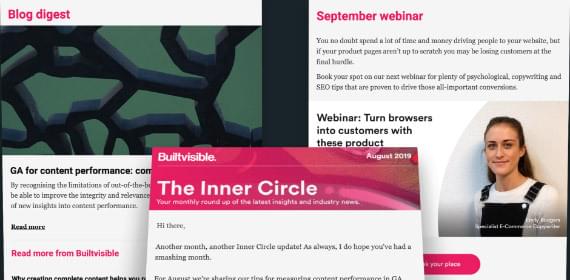Staying ahead of cultural shifts
People’s expectations are changing faster than brands can keep up. Heinz shows how to stay in the game with clever moves like their ‘Barbie-cue’ sauce, a saucy twist on THE Hailey Bieber’s phone accessory, and quirky collaborations like the ketchup-colored paint with Lick. This agile approach is all about understanding their audience and staying true to their brand, which helps them react quickly and seize opportunities.
Dan talked about how Heinz’s ability to join real-time conversations with audiences is key. Their in-house creative teams stay close to the action, allowing them to respond swiftly to cultural moments. By knowing their brand identity, Heinz avoids the trap of trying to please everyone and instead stays authentic with fast-paced, relevant content.
Integrating organic and traditional marketing at Heinz
Heinz does a great job of blending organic marketing with traditional strategies by focusing on cohesive messaging and building a community. Instead of just repurposing content, they prioritise engagement and conversation. For example, their “Too Good to Leave Behind” campaign quickly grew into a broader conversation about treating beans like royalty, encouraging fans to share their favourite ways to enjoy the product.
This approach leverages audience interaction, transforming comments and feedback into valuable touchpoints that drive brand love and connection – all too often missed opportunities in organic strategies.
Unlike the common “lift-and-shift” tactic where traditional ads are simply recycled for social media, Heinz creates bespoke organic content that resonates with its audiences. By valuing community engagement and dialogue, Heinz ensures its organic and traditional marketing efforts work harmoniously to reinforce a unified brand message.
Measuring organic marketing success at Heinz
Heinz takes a multifaceted approach to measuring the success of their organic marketing. For simple, conversation-driving content that quickly gathers followers and comments, they look at the cost-benefit ratio. Larger campaigns are evaluated based on year-on-year growth, positive sentiment, and peer-to-peer conversations.
Heinz values organic interactions not just on their channels but also in external conversations, like WhatsApp groups, reflecting true engagement. Key metrics include channel growth, engagement, and views, but the real measure of success is the broader impact on society, such as continued interest and direct messages from consumers.
Different creative approaches for organic and paid marketing
At Heinz, organic and paid marketing have distinct creative approaches. Dan explained that organic marketing is like meeting new people at a pub; you show genuine interest in your audience and build relationships. It involves listening and creating a dialogue, making the audience feel heard and valued.
Paid marketing, on the other hand, is about presenting your message to the audience; introducing yourself and sharing your story. Both strategies need to coexist harmoniously. Organic content lays the groundwork by fostering familiarity and trust. When audiences see engaging organic content, even if they haven’t followed the brand, they notice their friends’ interactions, which vouches for the brand and opens the door for paid content. Paid marketing can then confidently deliver brand messages, leveraging the trust built through organic efforts.
Advocating for organic marketing within the business
To convince stakeholders of the value of organic marketing, position it as a strategic investment rather than a cost. Here’s how to frame the conversation:
- Own vs. rent analogy: Explain the difference between renting an audience through paid ads and owning an audience through organic efforts. Owning an audience means building a lasting relationship that doesn’t require continuous payments that don’t build equity.
- Your audience is an asset: Highlight that an engaged, organic audience is a tangible asset that your brand owns, providing ongoing value and reducing future marketing costs.
- Long-term ROI: Emphasise the long-term return on investment. While organic efforts may take longer to show results, they lead to more sustainable and cost-effective growth. If you can’t make these results tangible to your business, get specialist help in doing so.
Demonstrating business value
At Builtvisible, we fully believe in the power of organic and work closely with our clients to ensure any organic activity is demonstrating value on the bottom line.
We loved speaking to Dan about how he is taking Heinz on the journey with organic, getting the business aligned and invested and using creative measurement mechanisms to play success back to a variety of key stakeholders.
Organic digital marketing often falls short in its ability to demonstrate value, so it was truly fascinating to hear Heinz’ approach to doing so!
Ready to turn your organic marketing into a revenue-driving powerhouse?
Speak to us and make sure your brand doesn’t get left behind!
